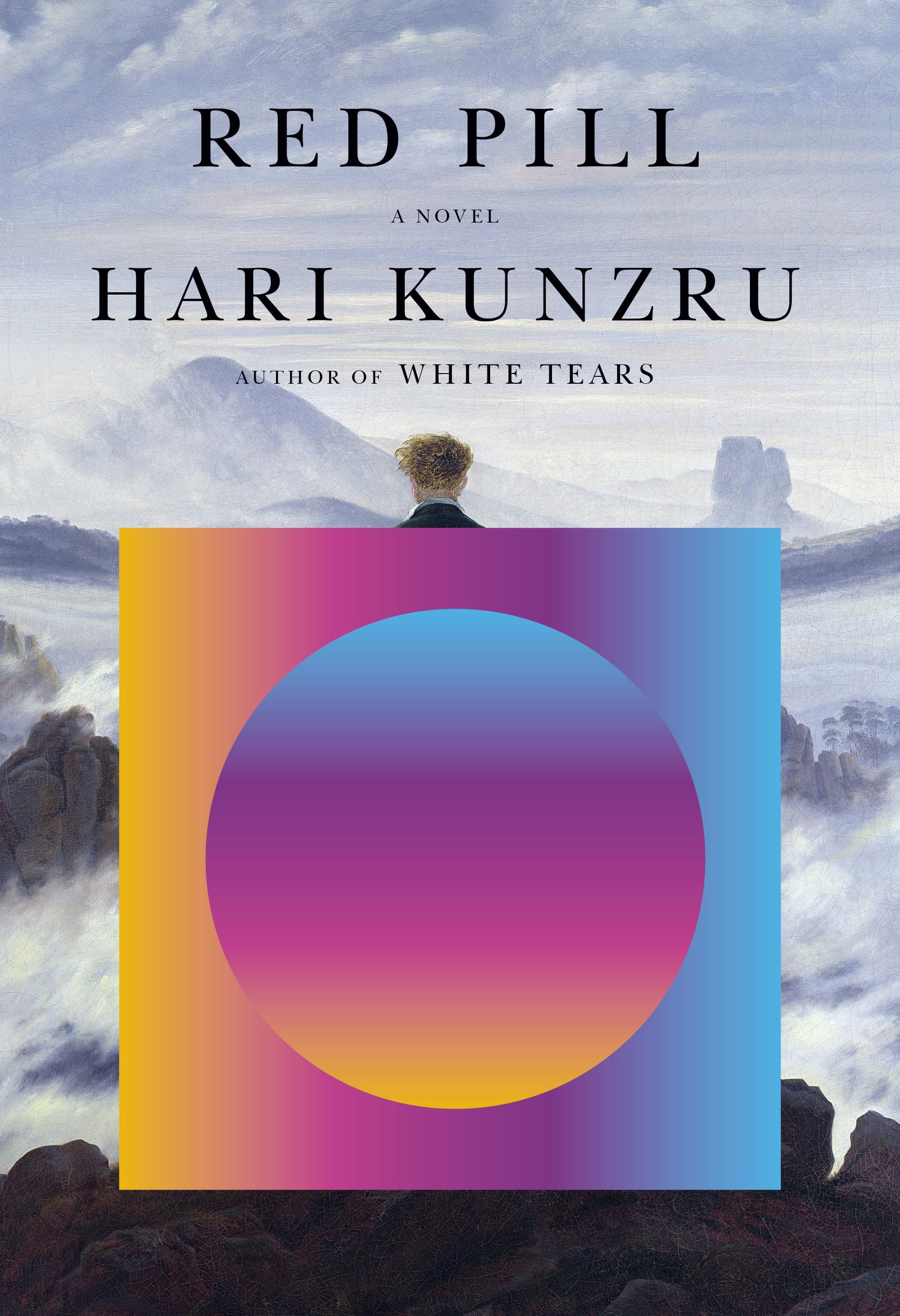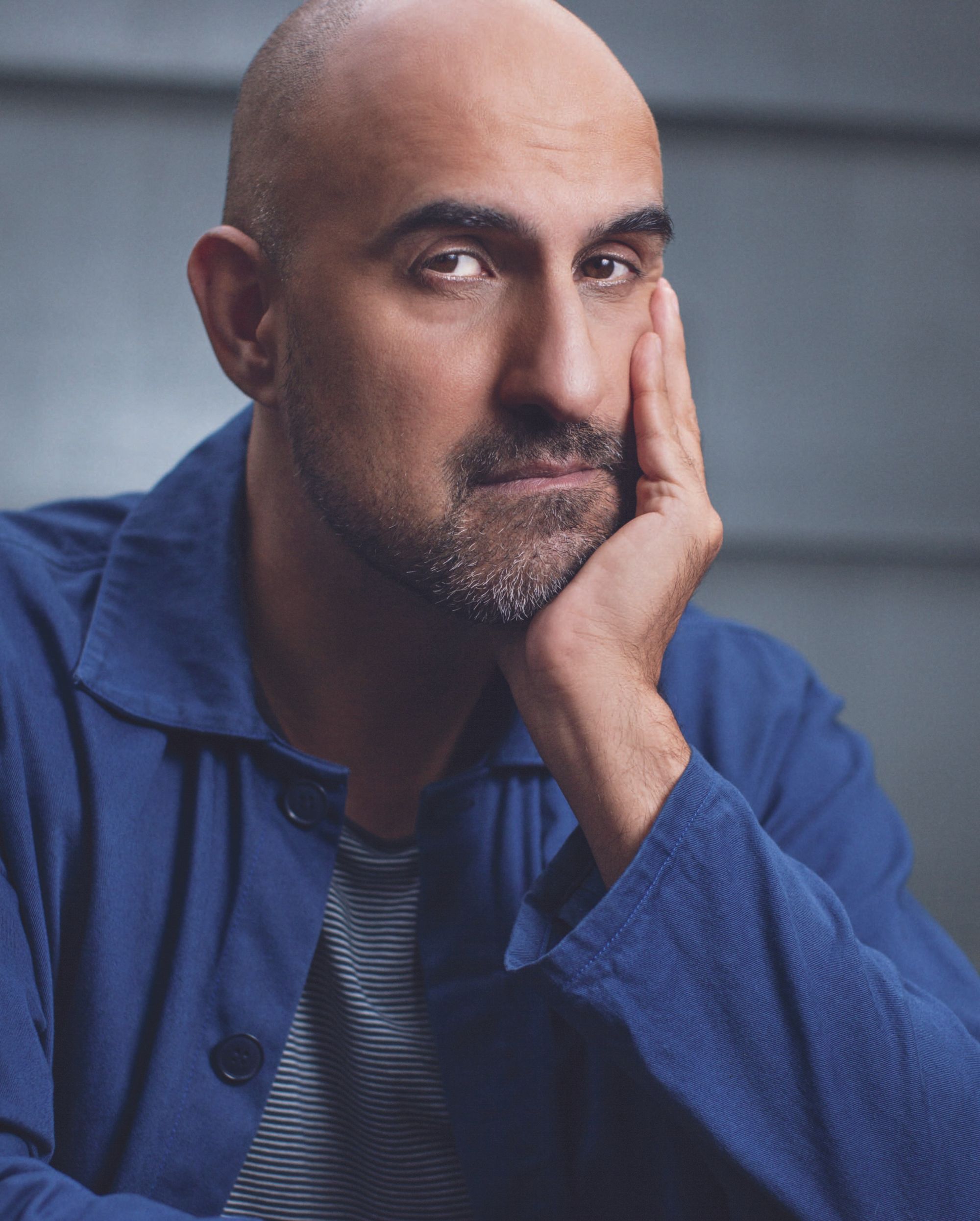Brooklyn to Berlin and Back: Paranoia, Alt-Right & Quest For Truth in Hari Kunzru’s “Red Pill”


Red Pill (September 1st) follows a British-Indian author living in Brooklyn who travels to Berlin for an academic fellowship. That also accurately describes Kunzru himself, but the unnamed narrator in the novel has his world tilted askew by his time in Germany. As he procrastinates by binge-watching a popular cop show, he grows suspicious of the malicious, alt-right intentions lurking in the show’s messaging, exacerbating his moral and existential dilemmas and leading him to abandon his work to pursue the truth.
Throughout much of his bibliography—such as his most recent novels White Tears and Gods Without Men—Kunzru has focused on questions of identity and ethics, with his characters often searching for meaning amongst the disordered and chaotic world which surrounds them.
Kunzru, born in London, became an accidental New Yorker twelve years ago. “I intended to be in New York for nine months,” he said in a phone interview with Bklyner. “But I fell in love and I got married, and this is my home now.”
In 2012, Kunzru and his wife, fellow novelist Katie Kitamura, moved to Clinton Hill from Manhattan. Six years later, they moved again to Bedford Stuyvesant, and Kunzru is glad they did. “We have a bit of outside space which has been very useful for the pandemic,” he said.
The pandemic has also allowed Kunzru to explore his adopted hometown. “One of my big activities has been cycling around the city, just following my instincts,” he explained. “Brooklyn is an amazing patchwork of neighborhoods. There are thirty different Brooklyns and I like that everybody is from everywhere and somehow we more or less get along.”

The plot builds towards the 2016 presidential election and deals with pertinent issues like online conspiracy theories and the alt-right. How long have you been developing this story or thinking about these themes?
I started writing the book towards the end of 2015 but even in the very early Internet days, I was realizing there was already some political extremist content. I’ve made it a habit to stay in touch with what the far right are thinking and how they’re viewing the world. There’s this new, young, far right culture that exploded in the last five years, so that’s been part of the background of writing the book.
What makes the book timely now?
I pushed hard for it to come out before the election, a lot of publishers are moving their books after the election. I’ve been trying to describe the atmosphere of anxiety that seems to hang onto everything these days. Certain things that we felt were fixed and true actually turned out not to be, and a lot of the foundations for our social world are much more shaky than we gave credit for. Historically, Americans have been very confident about the strength of American democracy and I think it seems that it’s a more fragile creature than we thought.
Your last two novels feature elements of magical realism or the supernatural. What do you like about that device?
I’m very interested in the fuzzy border where things could happen for a reasonable or rational explanation or they could be magical or supernatural. I’m also interested in the logic of magic and magical thinking, which is actually much more common as a way of viewing the world than we really give it credit for. The stuff that the Republican Party has saturated into the moment—the prosperity gospel and positive thinking stuff, the idea that you bring a reality into being by the strength of your will— that’s a magical way of thinking that’s very pervasive. There are genre elements to my stories and I like to take them serious and explore the ways in which those things can help us understand the world.
Red Pill is rooted in reality. Did you consider incorporating magical realism?
No, the reality is wild enough without needing to amp it up. If you described 2020 to somebody in 2015 they wouldn’t have believed you. We’re living in a very hallucinatory moment in history.
Much of your writing focuses on characters struggling with questions regarding their identity and their place in society. Why do you return to these themes?
It’s deeply rooted in who I am. I have an Indian father and an English mother and that gave me a slightly sideways view of British society growing up. More recently, I moved from the UK to the US. I hope to spend the rest of my life here, and it’s a strange time to make that kind of commitment to a country. But you only have to hear my accent to know that I’m not from here. That kind of dislocation has always been part of my experience of the world.
The middle of the book takes a detour into an account of the Stasi’s social and emotional manipulation of citizens in East Germany. Why highlight that story despite its loose connection to the book’s main plot?
The conventional thing in a novel would be not to include that, to make the novel unified, to keep the voice of the narrator. But he’s quite wrapped up in himself, he’s got this big set of psychological issues he’s dealing with, and I like the idea of having something come in from outside, a wedge into that story to break it in some way and to force him to look outside himself.
The second, more thematic thing is that you really can’t write about Berlin without addressing the layers of its history. The heart of this book is a story about privacy and surveillance, what it is to be a person, and that was a way of talking about the techniques that were used to demolish people—the Stasi called it “Zersetzung,” corrosion or undermining. They had a Stasi university in Potsdam and you could study how to destroy somebody else’s sense of self. I write about some of it in the novel, but there’s so much more. They would put teams of 20, 30 people on just one person, and they would be doing very peculiar low-level harassment: you’d go into a store and they’d let the tires go on your bike, while you’re out, they’re in your apartment and they just move some stuff around. All of these petty things designed to isolate people and make them feel that they didn’t have any privacy. They caused huge psychological damage that for some persists to this day.
How much research did that require? How did you determine how much to include?
I enjoyed doing a super deep dive into something like this. I learned what the Stasi had done to teenagers and people in their early 20s who just wanted to be in a band and mosh and yet were treated like a serious threat to the state. I went to Berlin and interviewed one of the original punks.
The research is like a scaffold around the story and you have to tear it away—if it’s not organically in the story it goes, but it’s helped you shape the story and give it some sense of realism.
Why did you create that parallel between the narrator and yourself?
I wanted to write a book with a writer at the center of it because I wanted him to be able to talk in certain writerly ways about the situation he finds himself in. It was interesting to have him looking like me. Berlin is a very white city and I was there when a million refugees had been welcomed into the country. Often, people assumed that’s who I was and treated me in the way they treated other refugees—I had either excessively hospitable interactions or very hostile reactions. All of that got wrapped up in it and I gave him a lot of my biography. I then also get to undermine him a bit: he doesn’t think the same things I do about some things, he’s more ranty or grumpy than I am. Maybe some people would disagree with that. [Laughs]
The book is a slow burn with the main conflict not appearing until the later stages. I noticed a parallel with how the alt-right has been building behind the scenes for years but now all of a sudden feels glaringly present. Were you aiming for that?
I hadn’t thought of it exactly like that. The book starts off as if it’s going to be like a campus comedy about this bunch of slightly ridiculous intellectuals and then it goes into this much more dark place. But you are right about the alt-right—if you were paying attention you can see how present they were ten years ago, you could see a set of resentments. For a lot of people Charlottesville was a real surprise, but it had been building for a while.
The book deals with questions of identity, but the narrator remains unnamed and other characters are referred to by multiple names. What were you trying to convey through that?
That’s sort of a seepage of the Internet into real life, the idea of multiple identities and the idea of hiding yourself in some way is so much part of that culture. And Internet culture is just our culture now.
I realized part of way on that I hadn’t actually given the narrator a name and then I decided he didn’t need one, that there would be that element of mystery to it. The character of Anton and his other identity is something that emerges out of the Internet into much more mainstream TV culture. We see this in the White House, people like Stephen Miller: if you can read between the lines you know exactly what kind of stuff he’s consuming and he’s managed to bring that into mainstream government. The fringes are much more present in the mainstream than a lot of people understand.



